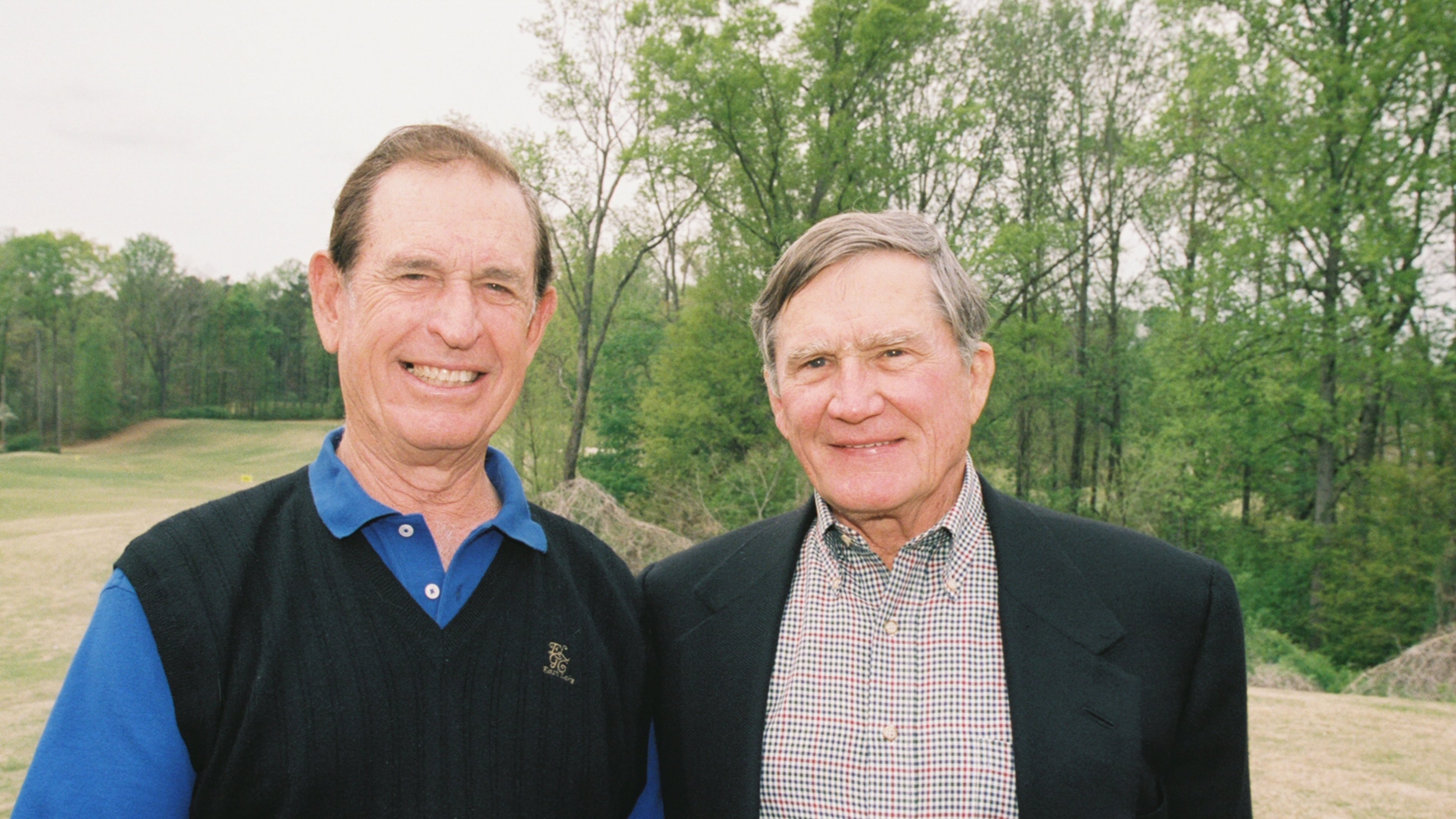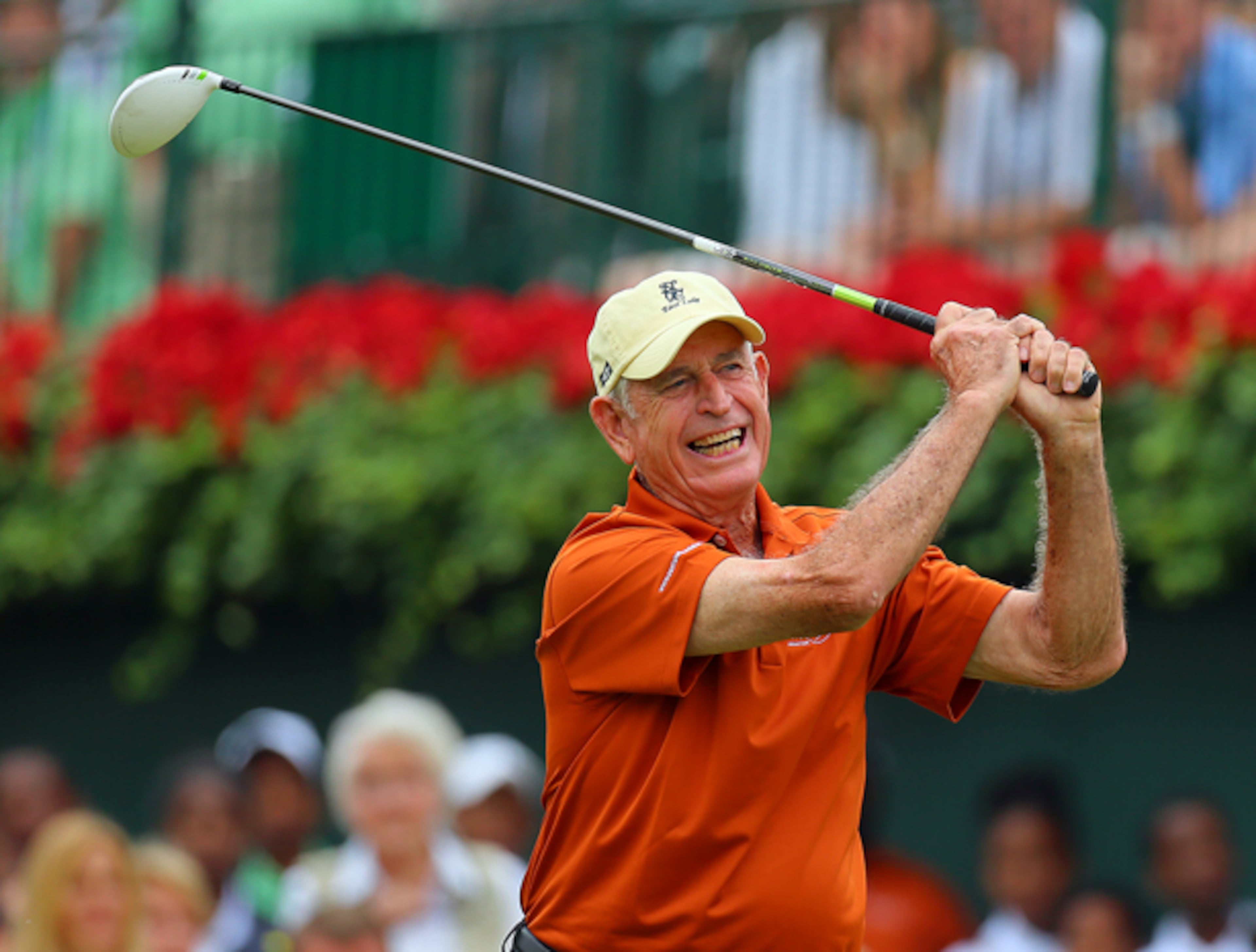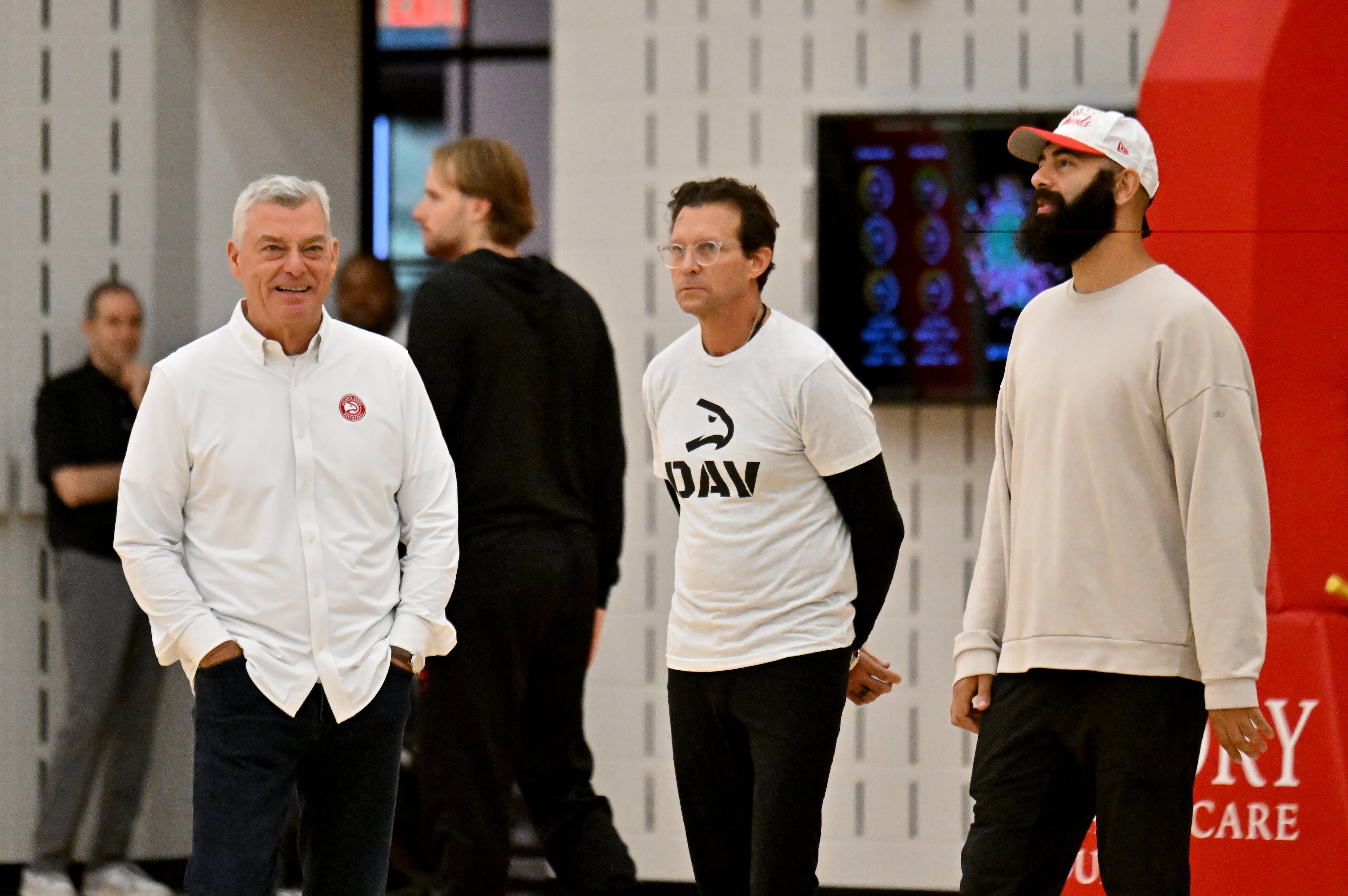Remembering Charlie Harrison, who leaves behind a golf legacy like few others

Almost 100 years ago, Bobby Jones gained worldwide renown as a champion golfer from Atlanta and earned acclaim as one of the sport’s all-time greats.
Today, Shelton Davis is another Atlantan trying to leave his mark on the game, a 37-year-old assistant golf pro at John A. White Golf Course in southwest Atlanta. One wonders what Jones, who died in 1971 at the age of 69, would have made of Davis’ golf-centered YouTube channel, ATL Swing King.
They are two men of different races (Jones was white, Davis is Black), eras and worlds. But they shared at least two improbable connections. Both grew up in the same Atlanta neighborhood, East Lake. And, through East Lake Golf Club, decades apart, both held dear the same man.
On July 15, the golf community in Atlanta and Georgia lost an impactful and beloved figure with the death of Charlie Harrison at the age of 94. Not only was he an amateur golfer of distinction, but Harrison left an imprint on Atlanta far more meaningful than any collection of trophies and medals.
“What Charlie meant to me — a great role model, a great example of how people should carry themselves around the golf course,” Davis told The Atlanta Journal-Constitution after Harrison’s Aug. 8 memorial service at St. Thomas More Catholic Church in Decatur.
More succinctly, Davis said, Harrison’s guidance “put me on a right path.”

Summarizing Harrison’s life is not simple. Born in 1931, he also grew up in East Lake and learned the game at East Lake Golf Club. There, he came under the mentorship of the legendary Jones, the winner of the Grand Slam in 1930 (then, the British and U.S. open and amateur championships) and who famously made East Lake his home club. He graduated from Marist School and played at Georgia Tech.
A lifelong amateur, he won the Atlanta Amateur 10 times and qualified for the U.S. Amateur 16 times. He twice earned entry into the Masters.
He was infatuated with the game. East Lake president and general manager Chad Parker said that, of all the people he has ever come across, Harrison was in the top three who loved the game “in terms of just how much he enjoyed playing the game, both casually and competitively. Just loved golf and loved being around it.”
Harrison was among the final remaining people with golfing ties to Jones, whose fame after his Grand Slam rivaled that of Babe Ruth’s. Jones’ relationship with Harrison grew into friendship.
“His stories of, early on, sneaking out to watch him practice and watch him play then became stories of the two of them interacting as Charlie’s game came along,” said Edward Toledano, a longtime friend of Harrison’s who for many years ran the Dogwood Invitational tournament at Druid Hills Golf Club that Harrison once won and became an honoree. “There were little anecdotes of Mr. Jones.”
Toledano described Harrison, the husband of Sylvia, father of Molly Harrison Smith and stepfather of Robert Clark Rudder III, as “the true Southern gentleman.” Toledano appreciated Harrison for how he remembered the names of Toledano’s former wife and daughter and always asked about them.
“There was never a ‘no’ from Charlie,” Toledano said. “It was, ‘Yeah, let me talk to Sylvia. Let me make sure she’s OK with it. Yeah, I’ll do that.’”
It was in that giving spirit that Harrison made his most significant contribution to his beloved game and hometown. When Harrison’s cousin Tom Cousins, the real estate mogul who transformed downtown Atlanta, sought to revitalize the downtrodden East Lake neighborhood in the 1990s, he enlisted Harrison’s support with the project.
With a mind to serving the club’s neighbors, Harrison helped East Lake Golf Club first launch a junior golf academy and then its own chapter of the national not-for-profit First Tee program, both of which sought to introduce the game to underprivileged children, teach them life skills through golf and open pathways for success.
That was where he met and helped Davis, the future golf pro. Davis grew up in East Lake Meadows, a public-housing project beset by poverty, drugs and gangs. His family later moved into the Villages of East Lake mixed-income development that Cousins built to replace East Lake Meadows. Through the academy and then First Tee, Davis and hundreds of young people of modest means connected easily with Harrison, a much older man who had achieved wealth and professional success, belonged to an upper-crust golf club and seemingly lived in a different world.
Davis recalled a man who always smiled, excelled at coaching chipping and putting and took him and other young golfers to a junior tournament in Dothan, Alabama, putting them up at his nearby home. With Harrison’s aid, Davis earned a golf scholarship, putting him on the road to his profession. The two remained in touch into Harrison’s final months.
After Harrison and Cousins died two weeks apart in July, Davis was moved to pay tribute to both men in a social-media post.
“You never judged us,” he wrote. “You welcomed us like family and opened doors we never thought we’d walk through. Because of you, I get to play, teach, and give back. I’m forever grateful.”
Benjamin Thomas, a co-worker of Davis’ at the John A. White course, first met Harrison when he was 7 through the First Tee program. Thomas remembered him as warm and full of great advice.
Thomas went on to earn a scholarship that Harrison and his wife established for golf-club employees and caddies and graduates from nearby Drew Charter School. It was suggested to Thomas that First Tee, supported by Harrison, helped give him a career.
“Most definitely,” he said. “Me just learning the game and being around it brought me to a lot of people and a lot of opportunities.”
Another product of the East Lake revival is the PGA Tour’s annual Tour Championship held at East Lake, which will be held next week and which contributes proceeds in part to the East Lake Foundation and First Tee – Metro Atlanta.
Parker, the East Lake Golf Club president and GM, thinks Harrison would be proud of his multifaceted legacy — his connection to the legendary Jones, a standout amateur career and his standing as a gentlemanly senior who introduced the game he loved to hundreds of young people who likely never would have played it otherwise.
“But I think my personal recollection is how much he advocated for the kids and for golf in this community,” Parker said.
A warm and fitting memory, surely shared by many.



